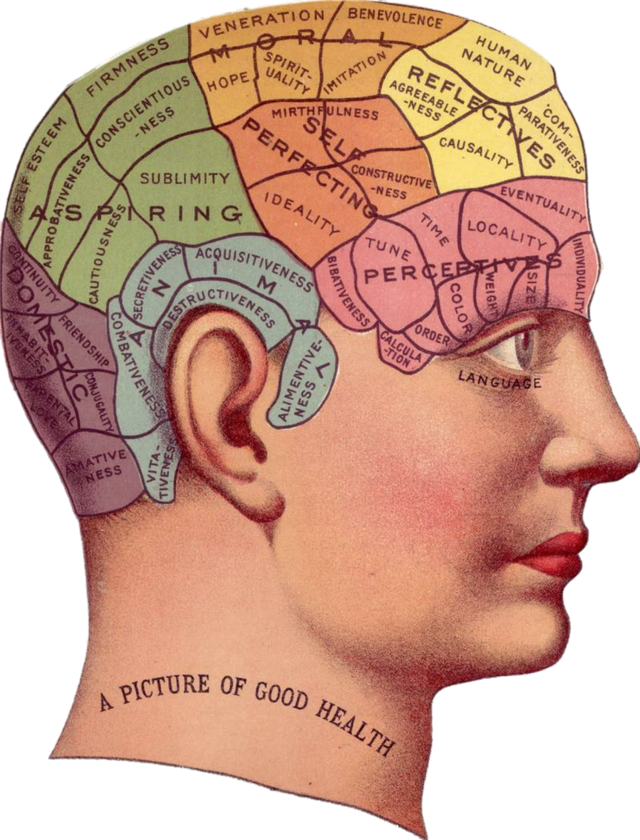Big lie about brain life...
A year ago, I wrote a column titled "Grad School in Humans: Just Don't Donate" to warn students that elementary school is a bad idea unless it is for themselves or someone else. They don't need to earn a living, they are wealthy or affiliated with (or associated with someone), or they are getting credentials for the job they already have.
In a follow-up post from March 2009, I, fortunately, dropped out of the contributor category because, as many readers have told me, graduate school and the "two physicist problem" often break up many seemingly stable relationships. It cannot be assumed that any society will be able to cope with the stress of entering academic life.
These columns garnered new attention from various websites in the past month and have since attracted a large number of emails and comments online. There was a tendency to divide the responses into two categories: One said she needed more of the practicalities of graduate school at the cost of "the life of the mind." The second set of responses, and so far numerous, was from graduate students who asked why no one told them their job prospects were so bad and wondered what they should do next.
I revealed more than a bit of sanctity and denial in most of the comments from the first group and then I took on a great deal of pain and frustration. He appears to have been praised by former officials. The latter expects to be slapped for asking questions. Surely that's why they write to me. They want to confirm that something is wrong with higher education, that they have been lied to, organized.
Some people have misrepresented my position that they graduated.
Humanitarian assistance is fine for the rich and is related to the idea that it should be that way, as if I were some kind of smuggling elite. It often happens that readers, looking at just an excerpt from a column, give the wrong advice on how to confront a difficult fact to confirm it, rather than criticize it.
One of the reasons a graduate school is already privileged is that its infrastructure depends on people who are neither privileged nor affiliated. Rich students are not trapped by the system. They can take what they want from it, they don't feel pressured, and they can walk anywhere with minimal results. They don't need to be obsessed with whether a teacher really likes them. If they are determined to become academics, they can choose universities based on fame rather than money. They can focus on research rather than working on time-consuming teaching and research assistance to help pay the bills. And, when they go to market, instead of accepting what is available, they may be in the perfect position.

Image
But this system of privileged presidents ultimately does not depend on them for the day-to-day work of higher education (which now, as we all know, is moving toward lucrative part-time businesses). These days, those with and associated with higher doctorate degrees are primarily below the lower middle class - those who have believed since childhood that there is equal opportunity for higher education. They see professions as a path to security and status.
Repeatedly, people who wrote to me would say things like "No one told me" and "What should I do now?" "Everybody keeps saying that my PhD gives me all kinds of transfer skills, but I can't get another interview even outside of academia." "What about me?"
The myths of academic excellence affect students from families that believe in education, who may or may not have a bachelor's degree, but also how access to professionals is controlled. He doesn't have much experience. Her daughter goes to graduate school, earns a Ph.D. in comparative literature from Ivy League University, everyone is proud of her, and then she is shocked when she struggles to earn more than minimum wage for years. (Meanwhile, her brother, who has never been very good at school, makes a living fixing an HVAC system with a six-month certificate from a for-profit school near Intrastate.)
Unable to even consider that something could go wrong with higher education, moms and dads begin to think that something is wrong with their daughter and begin to internalize that feeling.
Everyone has told him that "there are always places for good people in the academy." She is beginning to feel the possibility of some kind of fatal personal loss. She goes through lots of fun interviews, takes business classes, and learns how to apply for non-academic positions. But time and time again, she favors college students who are no different than the ones she has been teaching for years. Perhaps, he is surprised, there is something in me that disqualifies me for any type of work.
This has been going on for years: sleepless nights, anxiety, growing and paralyzing self-doubt, and a host of stress-related illnesses. He has even completed his Ph.D. His experience is painful, but he fears interviewers will ask him what he has been up to for the past 12 years. (All of his old friends are still well established, with some families, some who seem to have high-level careers. He lives in a small apartment and is struggling to pay off his student debts). What is left now? academics work with his immediate supervisor only three years after finishing high school?
She was the best student the mentor had ever seen (or said); When he was admitted to a distinguished doctoral program, it seemed like a dream. She worked so hard for so long. She won almost all the awards. She published many articles. She became fully aware of her academic life. Even distancing yourself from your less educated family. For all of these reasons, they are associated with those who qualify for food stamps and increasingly isolate themselves to avoid the thrill of decision-making. His students have no idea that he is a prisoner of the graduate school poverty trap. The comfort of teaching is beyond his imagination.
These people sometimes write to me about his suicidal thoughts and I don't think anything will separate them from me.
Scenes like this annoy me about teachers still throbbing for "mental life." She denied responsibility for what happened to the graduates. But this sentence shows that there is only a chance that you won't get a one-time job, not a huge impossibility that you have to do.
Some professors tell students to go to graduate school "only if they can't imagine doing anything." But they generally say this to students who have lived in an educational institution their entire lives. They just don't know what is there. They know how to get to school and they think they know what it's like to be a teacher.
There must be a special place in hell for those professors who, at the end of a 10-year mentor's graduate program, in which no jobs appear, say, "Well, academia is not for everyone."
The main point of another column I wrote six years ago ("If You Must Go") is that students considering graduation should "do their homework." But the problem is that there is still no way out, aside from rumors that they don't really have access to, to help students gather very important information about graduate programs: undervaluation rate, average debt. The loan amount upon graduation and, most importantly, the location of the graduates (the difference between adjunct, lecturer, visitation, duration follow-up positions, and non-academic positions). Programs often state that graduates who work as visiting graduates or faculty are successfully placed in the profession.
Most departments will never knowingly provide this information because doing so is against their best interests. I don't see any way this information is available unless it becomes part of endorsement or rating in publications like American News and World Report. With the help of organizations like the American Association of University Professors, if a large number of students start demanding it, departments can begin to offer details. Graduates can begin collecting and reporting this information on a website on their own.
For some privileged people, a graduate school may be about "learning with interest." But for most of us, graduate school in humanity is not about the inherent promise of a middle-class professional's life, respect, hatred for her job, and ruining her life. This dream is gone for almost everyone who enters the academy.
If you are one of the lucky ones who benefit from Big Lee, you will probably continue to offer this attraction of life to weaker students who train from birth, trust your teacher.
Grad school is a trap on humanity. This is how it is designed. It is based on structurally limiting the powers of students and their perception in society that it is vergo
It is necessary to give up the "mental life." That is why most graduate programs reduce or increase the number of students enrolled.
Special Thanks:

Very nicely written blog 👍